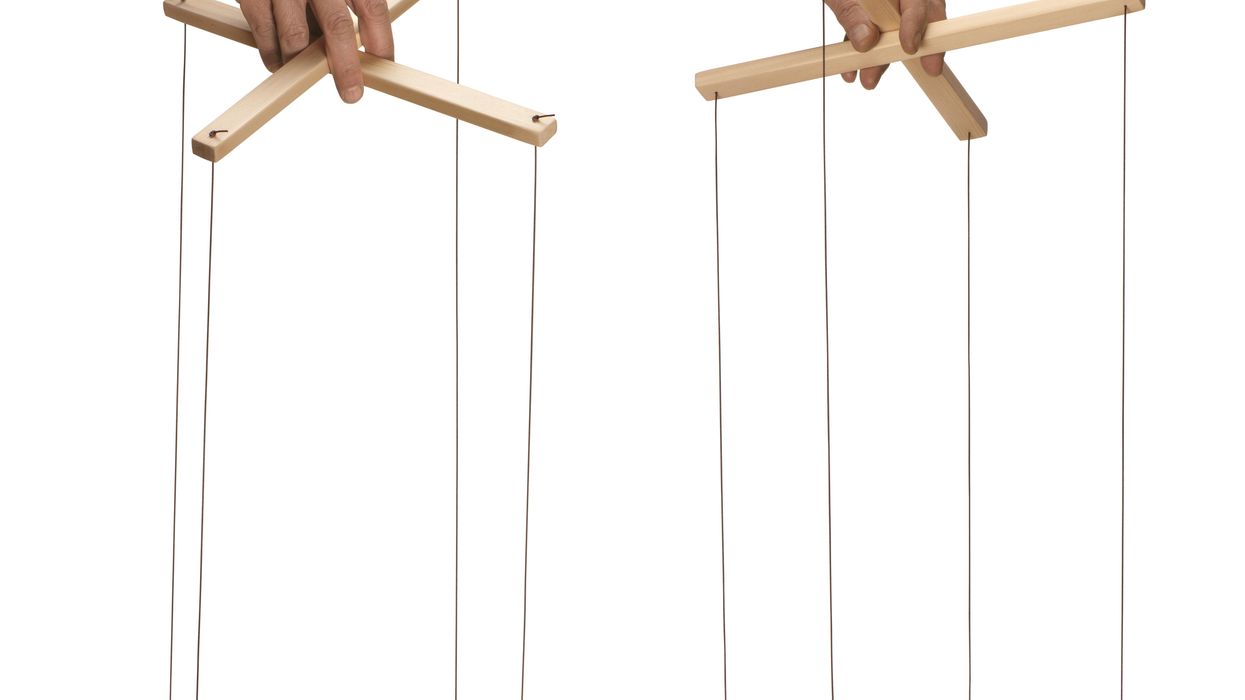Tied to your party's platform. Tied to your party's primary voters. Tied to your party's donors. Tied to your party's leaders. And, of course, tied to your consultants so you can get re-elected.
Our politicians come with a lot of strings attached. Even the most fervent good-governance advocates, such as Stacey Abrams, fall short of acknowledging that even with full voter participation, our system binds and biases politicians from being truly free to represent their constituents.
Closed primaries, for instance, bind politicians to prioritize their partisan primary voters above all other voices. The typical U.S. House member has to be especially attentive to this audience because every two years their job is in the hands of these ideologically extreme individuals. Good-governance advocates could champion open primaries and/or independent redistricting commissions as a means to increase the "value" of votes from the general electorate. However, such reforms would diminish the power of the two major parties and not even people like Abrams dare cross their party's influence.
Seemingly unlimited influence from major donors similarly binds politicians. Money is even more powerful than votes in our current democracy, as pointed out by Katherine Gehl of the Institute for Political Innovation. Once a politician locks up enough votes to get through their primary and the general, there's no incentive to push for more votes. More money, on the other hand, is always useful because those dollars can be shared with other party members — helping make you a kingmaker and, thereby, move you up the party ranks. So if a donor wants a politician or their party to go in a certain direction, the odds are they'll find a way to pivot in that direction.
Ultra vires partisan structures within Congress and our state legislatures similarly bind politicians. The decision to grant partisan leaders power over things like committee assignments means politicians are rewarded for being good party soldiers.
Finally, the normalization of career politicians — endlessly seeking another term — means politicians are beholden to their consultants. They pollsters, social media planners, etc. make sure politicians never get too close to going against the grain. These creatures of the partisan industrial complex help everything stay within the party-approved lines.
All of these strings have left the American people with puppets for politicians at a time when we need public servants. All of the incentives encourage politicians to become captured, so we need a generation of public servants with enough of a moral compass to step up, serve, then step aside. These no-strings-attached public servants can pass legislation that's costly in the short run to create a better future. These uncaptured public servants can shun special interests and focus first on what's best for their constituents. These short-term politicians can stop contributing to the partisan industrial complex and actually spend their terms governing, rather than dialing for dollars.
It's a worthy aspiration to make it as easy as possible for people to vote. But so long as money is more valuable than votes and primary votes are more valuable than "normal" votes, full participation would be a pyrrhic victory.


















 "On the Frontlines of Democracy" by Nonprofit Vote,
"On the Frontlines of Democracy" by Nonprofit Vote,

Trump & Hegseth gave Mark Kelly a huge 2028 gift